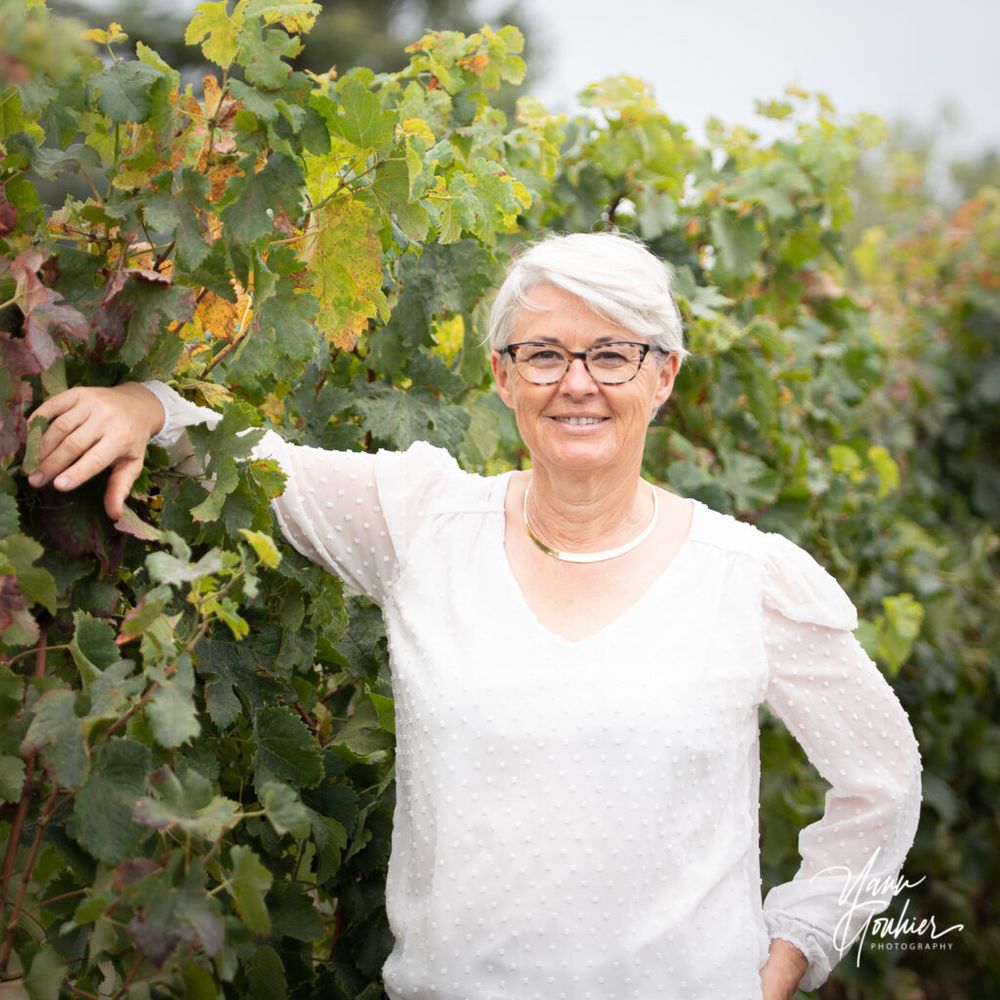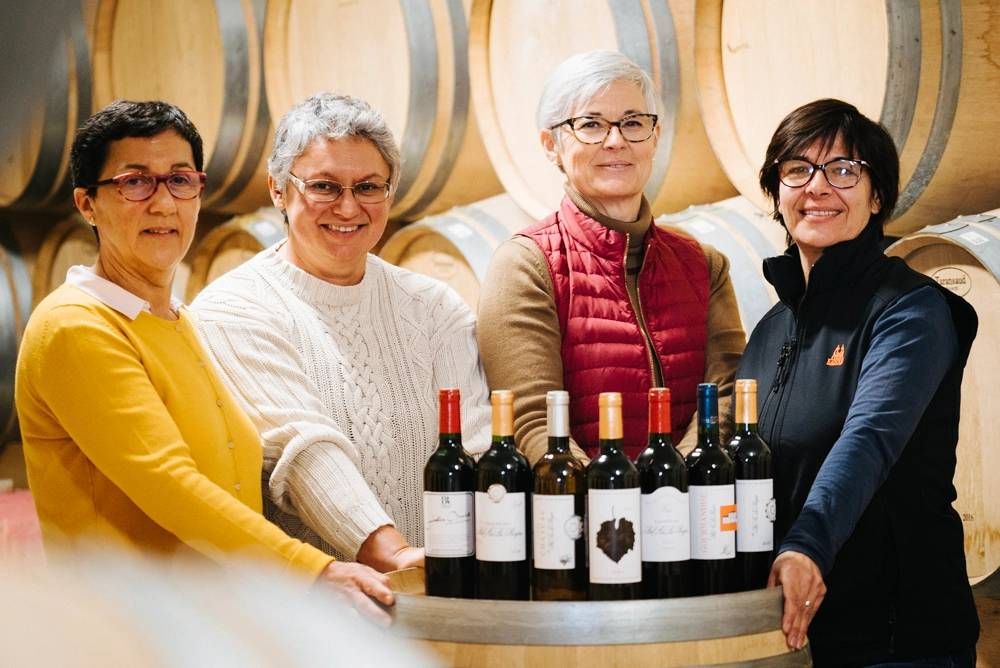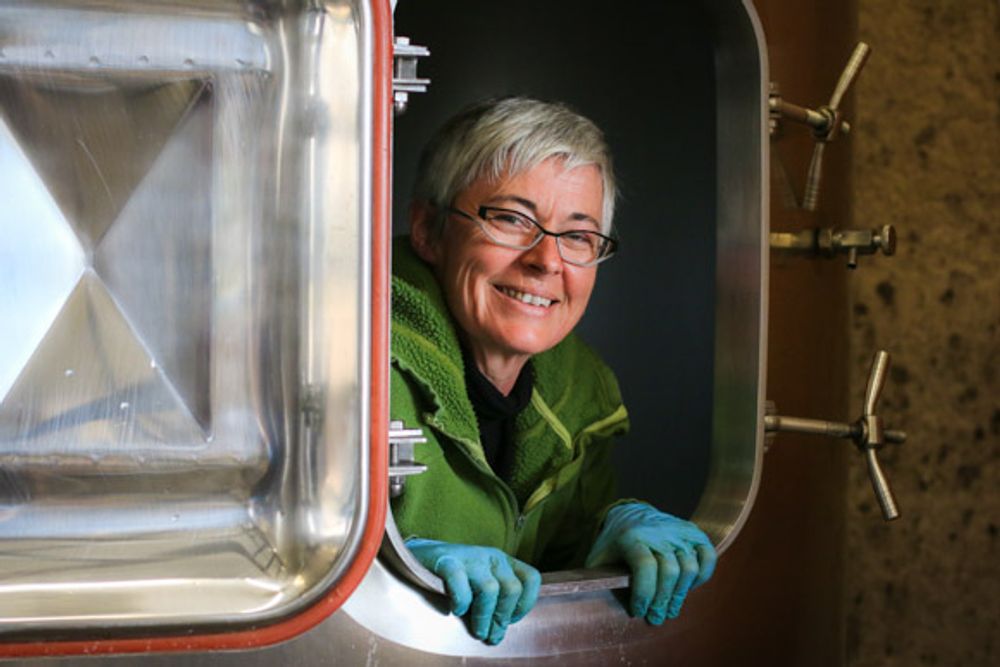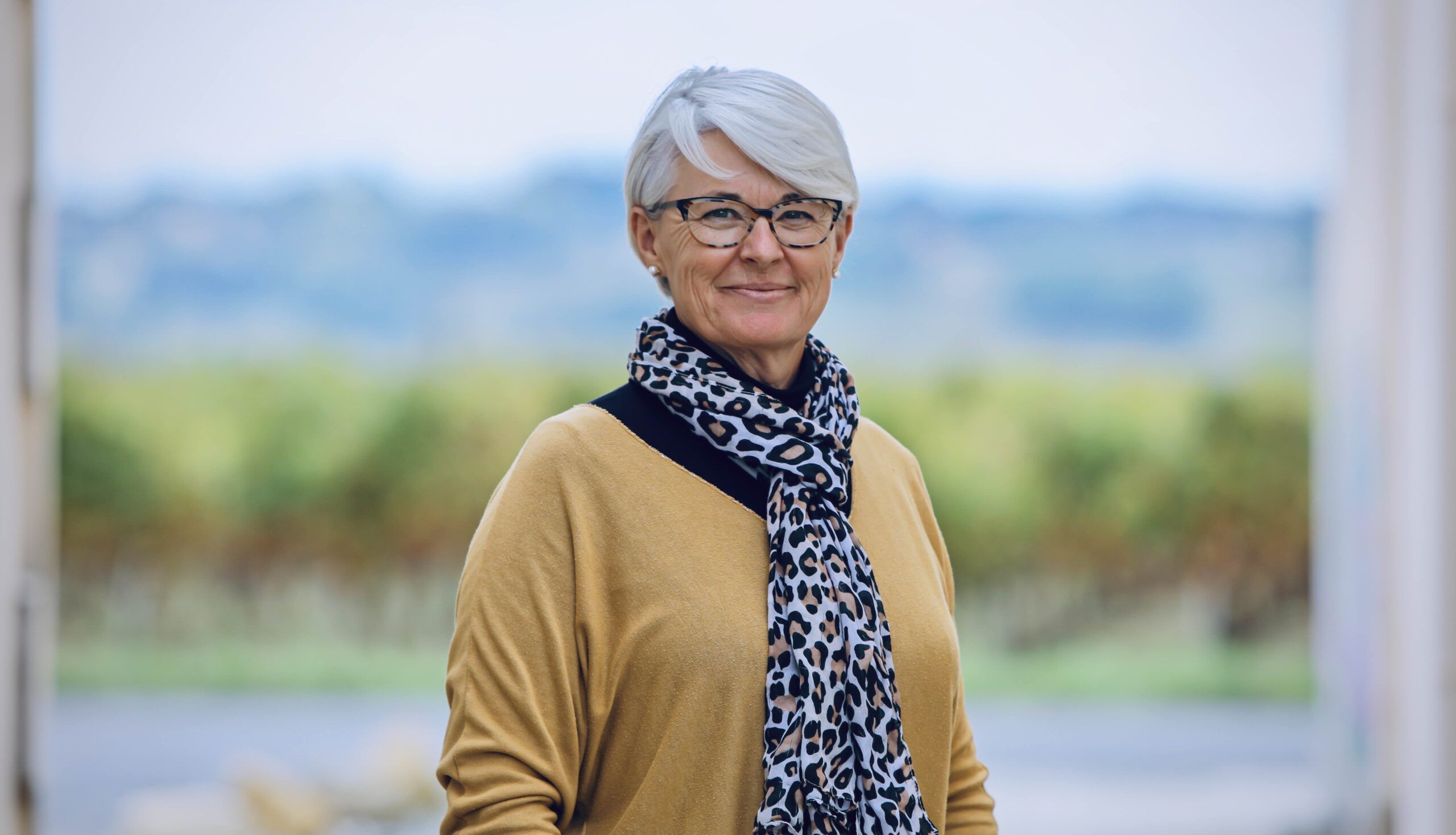Corinne Chevrier seeks out and works with old vines and replanted forgotten grape varieties such as Malbec in order to produce wines that fully express what Château Bel-Air La Royère in the Blaye Côte de Bordeaux AOC appellation can produce.
Tell us about yourself and your background?
I was born in Charente, in the Cognac region. I am the fourth generation of winegrower. We wanted to diversify and bought a vineyard in Blaye in 1992. It was my husband who first managed the vineyard. I took part in it from quite a distance at the time, my four children were my main concern.

Corinne Chevrier says there is now a lot of “Girl Power” driving winemaking across Bordeaux
Why and how did you choose a career in wine?
We can say that I didn’t really choose this profession, not even at all. With my family background, I knew the difficulties but also the happiness that we could find there. I would say the vineyard adopted me. But 16 years after we settled down, my husband chose to leave the boat. I had no choice but to continue what we had set up and, finally, with great happiness.
How did you learn the skills you need as a winegrower?
I was trained in the field. My husband was an engineer and I had a sales degree. We were first followed by an oenologist who taught us a lot, Mr Christian Veyry. I helped my husband in the cellar and in the vineyard for everything that was manual. I didn’t know how to drive a tractor. It was my son, the third of my children, who taught me how to drive the tractor when his father retired in 2010.
Explain your current role with regard to the wines you produce, the scale of production and the style of wines you make?
Finally, when I took over the controls of the liner, I followed the recipes like in a restaurant, but very quickly chose to add my own touch. Indeed, we don’t want to drink the same wines anymore. I still like ageing in barrels, but I tend to use less new barrels. We are ageing in vats to recover the fruit and we just invested in amphoras, which seem very promising.Our property has 12 hectares in production, i.e. around 80,000 bottles a year.
What do you find most rewarding in your role?
I’m delighted when customers come to see us and buy some of our wine and recommend it to their friends. It’s a real recognition of our work. It’s what gives me the energy for each day.

Corinne Chevrier and her mostly female team at Château Bel-Air La Royère where she only has one male employee
What do you find the most difficult?
The weather. It’s like a sword of Damocles over our heads. Then the bottling. For me it is the culmination of our work, I often compare it to giving birth.
How have you found it as a woman working in the role you have as a winemaker?
It was easy for me to settle in well as a woman winemaker in Blaye. My colleagues are very respectful. Many of them are also women.
Generally, Bordeaux wines are produced by family-run estates. Traditionally, husband and wife work together: she deals with administrative matters, sometimes works in the vines; he runs the vineyard and the cellar. This scheme tends to disappear as a lot of women settle by themselves.
I can say that we need to know everything and be able to hire qualified employees if we need. I am a manager conducting the orchestra. It is not always an easy tasks but thanks to modern tools, it is easier than it used to be. I am mainly surrounded by women. I only have one male employee. It’s not a choice. It just happened – and it works.
What advice and support would you give to other women who want to work in wine, winemaking and viticulture?
We have to trust each other, to follow our own vision. We often lack self-confidence and I think we should do.

Corinne Chevrier says she has learnt winemaking by working in the vineyards and the experience you get from one harvest to the next
What would you like to see the industry in general do to be more inclusive?
Women are having more and more of a say whether it is in viticulture, winemaking, tasting, sommelier. It may be necessary one day to put on parity policy otherwise there will only be women 😉.
In general, we need to improve the image of Bordeaux. We are real people: you have a man or a woman behind the bottles. We must show our differences, our diversity. We are accessible, open-minded, ready to listen. We love welcoming guests as visiting other vineyard and improving ourselves.
Do you consider that these measures are being taken and, if so, what do you think has the greatest impact?
Some winemakers have launched informal individual initiatives, mutual aid. We’re not competitors, we support each other.
Do you see yourself in a leadership role as a woman in the trade – if so, what steps and influence do you hope to have?
I think my female colleagues in Blaye and I are part of a great group. We can talk about our different points of view; we call our group “Girls Power”. I hope this will encourage other young women to become winegrowers and come and meet us.
What have been the latest steps and innovations that you have introduced in your wines and vineyard to improve their quality?
Since 2012, we have been working on the vineyard. It was previously in Integrated Pest Management. In 2016, we signed with Ecocert, so 2019 was our first organic vintage. We also introduced amphoras this year. We are experimenting with Malbec and Merlot I hope to buy others next year.
How do you see the future?
I would be delighted to continue to train young people and more particularly young girls to become winemakers. It is not always easy but finally what a pleasure to give birth to a new child each year…































